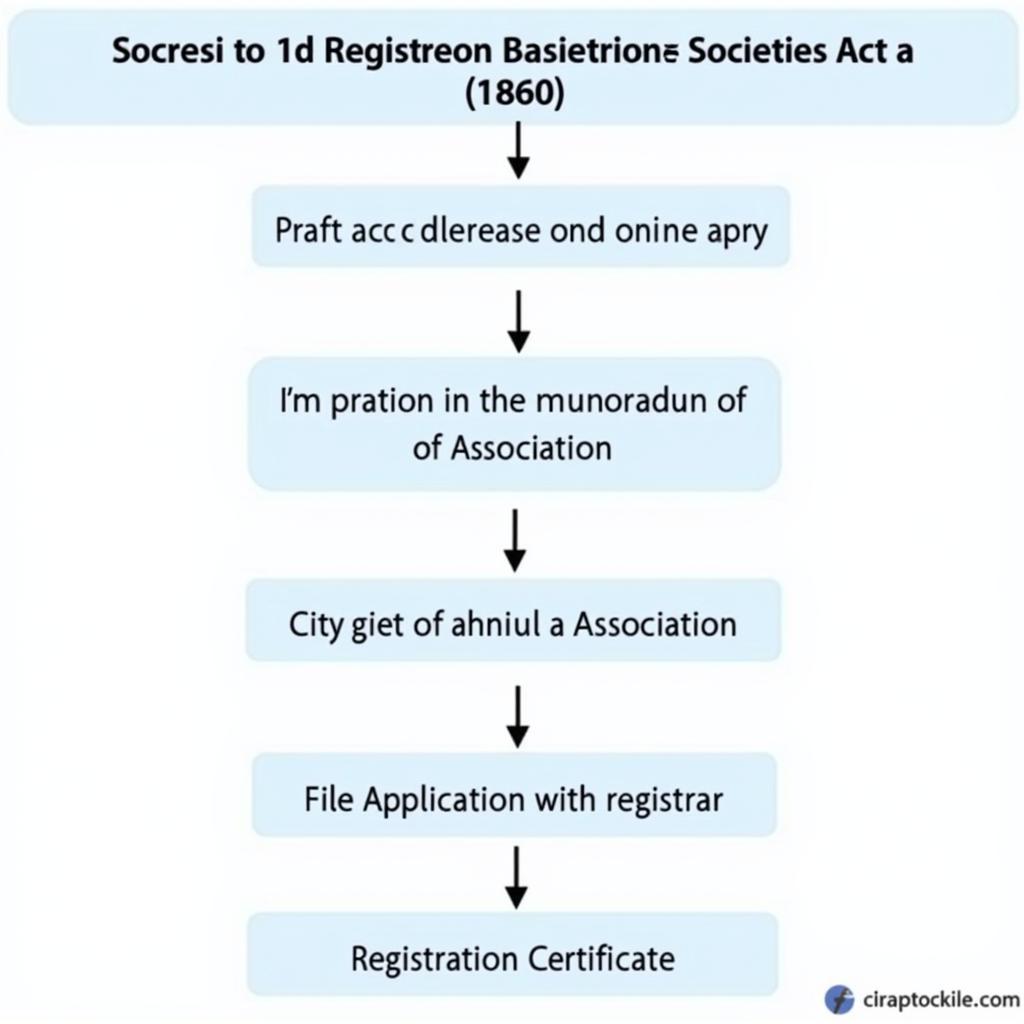The Societies Act 1860 is a key piece of legislation in Pakistan, governing the establishment and operation of non-profit organizations. Introduced during the British colonial era, this act continues to have a significant impact on civil society in Pakistan today. This article delves into the intricacies of the Societies Act 1860, examining its historical context, key provisions, and contemporary relevance in Pakistan.
Historical Background of the Societies Act
The Societies Act 1860 was enacted by the British colonial government in India, with the aim of regulating the formation and functioning of societies, particularly those engaged in political or religious activities. The act was designed to maintain order and control over potential dissent during a time of significant social and political change.
After the partition of India in 1947, Pakistan inherited this legal framework, and the Societies Act 1860 remained in effect. Despite numerous calls for reform over the years, the act has remained largely unchanged, continuing to shape the landscape for non-profit organizations in the country.
Key Provisions of the Societies Act 1860
The Societies Act 1860 outlines the legal framework for registering and operating societies in Pakistan. Here are some of the key provisions:
-
Registration Process: The act lays out the process for registering a society, requiring the submission of a memorandum of association outlining the society’s objectives, rules, and regulations.
-
Governance Structure: It mandates a defined governance structure for societies, including the appointment of office bearers like a president, secretary, and treasurer, responsible for the society’s administration.
-
Financial Accountability: The act emphasizes financial transparency and accountability, requiring societies to maintain proper accounts and submit periodic financial reports to the government.
-
Dissolution: The Societies Act 1860 also outlines the procedures for the dissolution of a society, either voluntarily by its members or by government order under specific circumstances.
 Registration Process under Societies Act 1860
Registration Process under Societies Act 1860
Impact and Challenges of the Societies Act 1860
While the Societies Act 1860 provided a framework for regulating non-profit organizations, its colonial origins and outdated provisions pose significant challenges in the modern context.
-
Restrictive Environment for Civil Society: Critics argue that the act’s stringent registration requirements and bureaucratic procedures hinder the growth of a vibrant and independent civil society in Pakistan.
-
Limited Scope: The act’s narrow definition of “society” often excludes various informal community groups and initiatives from its purview, limiting their access to legal recognition and benefits.
-
Potential for Misuse: The act grants significant discretionary powers to government authorities, raising concerns about potential misuse for restricting freedom of association and silencing dissenting voices.
Calls for Reform and Modernization
Recognizing the need to align the legal framework with the evolving needs of a modern democratic society, there have been consistent calls to reform or replace the Societies Act 1860.
-
Promoting Transparency and Accountability: Reform proposals emphasize the need for simpler and more transparent registration processes, promoting ease of operation for non-profit organizations.
-
Ensuring Freedom of Association: Advocates call for aligning the act with international human rights standards, guaranteeing freedom of association and protecting civil society’s space to operate freely.
-
Empowering Civil Society: Modernizing the legal framework is seen as crucial for fostering a more enabling environment for civil society organizations, allowing them to effectively contribute to Pakistan’s social and economic development.
Conclusion
The Societies Act 1860, a relic of the colonial era, continues to shape the legal landscape for civil society organizations in Pakistan. While the act provides a basic framework for registration and operation, its outdated provisions and restrictive nature pose significant challenges for the growth and effectiveness of non-profits in the country.
Moving forward, it’s crucial to prioritize comprehensive legal reforms, replacing the Societies Act 1860 with a more contemporary and enabling framework. This modernized approach will empower civil society organizations, enabling them to fully contribute to Pakistan’s development while upholding democratic values and fundamental freedoms.
Frequently Asked Questions (FAQs)
1. What is the purpose of the Societies Act 1860 in Pakistan?
The Societies Act 1860 primarily governs the establishment, registration, and operation of non-profit organizations in Pakistan, outlining rules related to their governance, financial management, and dissolution.
2. How does the Societies Act 1860 impact NGOs in Pakistan?
The act’s stringent registration requirements and bureaucratic processes can create hurdles for NGOs, limiting their growth and effectiveness. The potential for misuse of power by authorities also raises concerns about restrictions on freedom of association.
3. Why are there calls to reform the Societies Act 1860?
The act is considered outdated and restrictive, failing to address the evolving needs of a vibrant civil society. Reform proposals aim to simplify procedures, promote transparency, and ensure greater freedom of association for NGOs.
4. What are the potential benefits of modernizing the Societies Act 1860?
Modernizing the act can create a more enabling environment for NGOs, allowing them to thrive and effectively contribute to Pakistan’s social and economic development while upholding democratic values.
5. Where can I find more information about the Societies Act 1860?
For further details and legal advice, it’s recommended to consult legal professionals specializing in non-profit law or refer to the official gazette of Pakistan where the act is published.
Need further assistance?
Our team at Pakistan News is dedicated to providing you with accurate and insightful information. If you have any questions or require further clarification on the Societies Act 1860 or any other legal matters in Pakistan, please don’t hesitate to reach out to us:
Phone Number: +923337849799
Email: [email protected]
Address: Dera Ghazi Khan Rd, Rakhni, Barkhan, Balochistan, Pakistan
We have a dedicated customer support team available 24/7 to assist you.